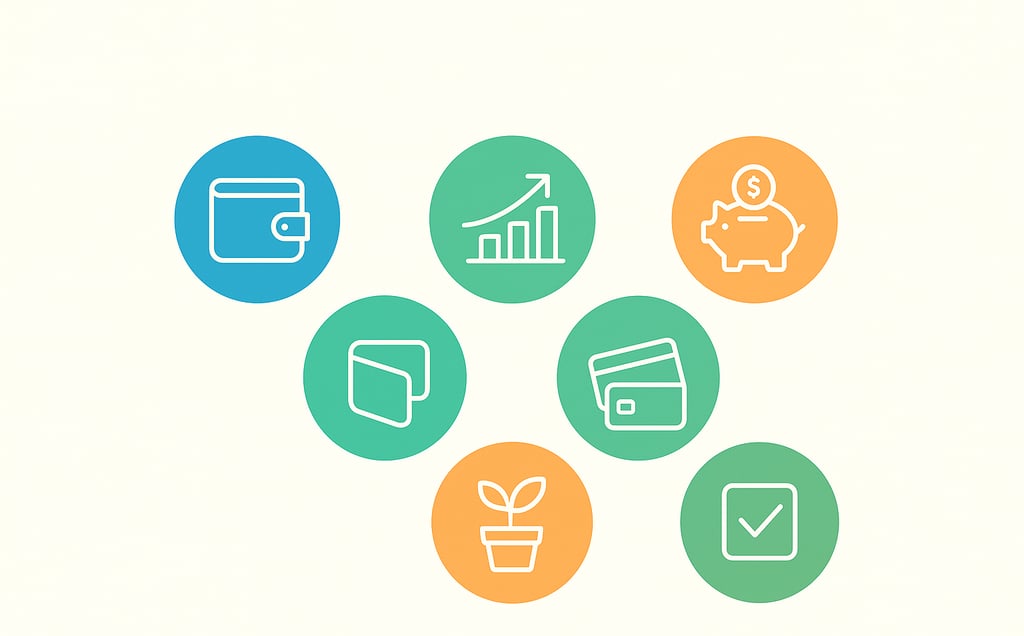7 Simple Financial Habits to Transform Your Life
This article explores 7 simple financial habits that can help anyone transform their financial life. It highlights practical steps such as creating a budget, tracking expenses, building an emergency fund, avoiding unnecessary debt, saving consistently, investing wisely, and continuously improving financial knowledge.
8/29/20252 min read


Many people believe that financial success comes only from earning more money. While increasing your income can certainly help, the truth is that long-term stability is built on daily financial habits. These small, consistent practices create a strong foundation that allows you to save, invest, and achieve financial freedom.
Below are seven simple financial habits that anyone can adopt to take control of their money and transform their future.
1. Track Your Expenses Daily
Keeping track of every expense, no matter how small, helps you understand where your money goes. Many people are surprised when they realize how much they spend on small daily items such as snacks, coffee, or rideshare apps.
📌 Tip: Use a finance app or even a simple spreadsheet. Reviewing your expenses weekly allows you to identify unnecessary costs and adjust your budget.
2. Create and Stick to a Budget
A budget is your roadmap to financial health. It helps you balance income, expenses, and savings. Without one, it’s easy to overspend and live paycheck to paycheck.
📌 Tip: Apply the 50/30/20 rule – 50% for needs, 30% for wants, and 20% for savings or debt repayment. Adjust it to fit your reality.
3. Pay Yourself First
Instead of saving what’s left after spending, save before you spend. Treat savings like a monthly bill you cannot skip. This habit ensures consistent progress toward your financial goals.
📌 Tip: Automate your savings so a fixed amount is transferred to a separate account every month.
4. Build an Emergency Fund
Life is unpredictable—car repairs, medical bills, or unexpected job loss can throw your finances off balance. Having an emergency fund protects you from relying on credit cards or loans.
📌 Tip: Aim for at least 3 to 6 months of essential expenses saved in a safe, accessible account.
5. Avoid Impulse Purchases
Impulse buying is one of the biggest enemies of financial health. Those “small treats” can add up and derail your budget.
📌 Tip: Apply the 24-hour rule: before making a non-essential purchase, wait a day to see if you still want it. Most times, you’ll realize you don’t.
6. Pay Off Debt Strategically
High-interest debt, especially from credit cards, eats away at your income and delays financial freedom. Paying off debt should be a priority.
📌 Tip: Choose a method that works for you—Snowball Method (pay the smallest debts first for motivation) or Avalanche Method (pay the highest interest first to save money).
7. Invest Consistently
Saving money alone won’t grow your wealth—investing is key. Even small amounts invested regularly can grow significantly thanks to compound interest.
📌 Tip: Start with simple, diversified options such as index funds or ETFs. Consistency matters more than the amount you start with.
Final Thoughts
Developing healthy financial habits doesn’t require a huge income or complicated strategies. It’s about discipline, consistency, and small daily choices. By tracking expenses, budgeting wisely, saving before spending, and investing for the future, you can transform your financial life step by step.
Remember: It’s not about perfection, it’s about progress. Start today, and your future self will thank you.